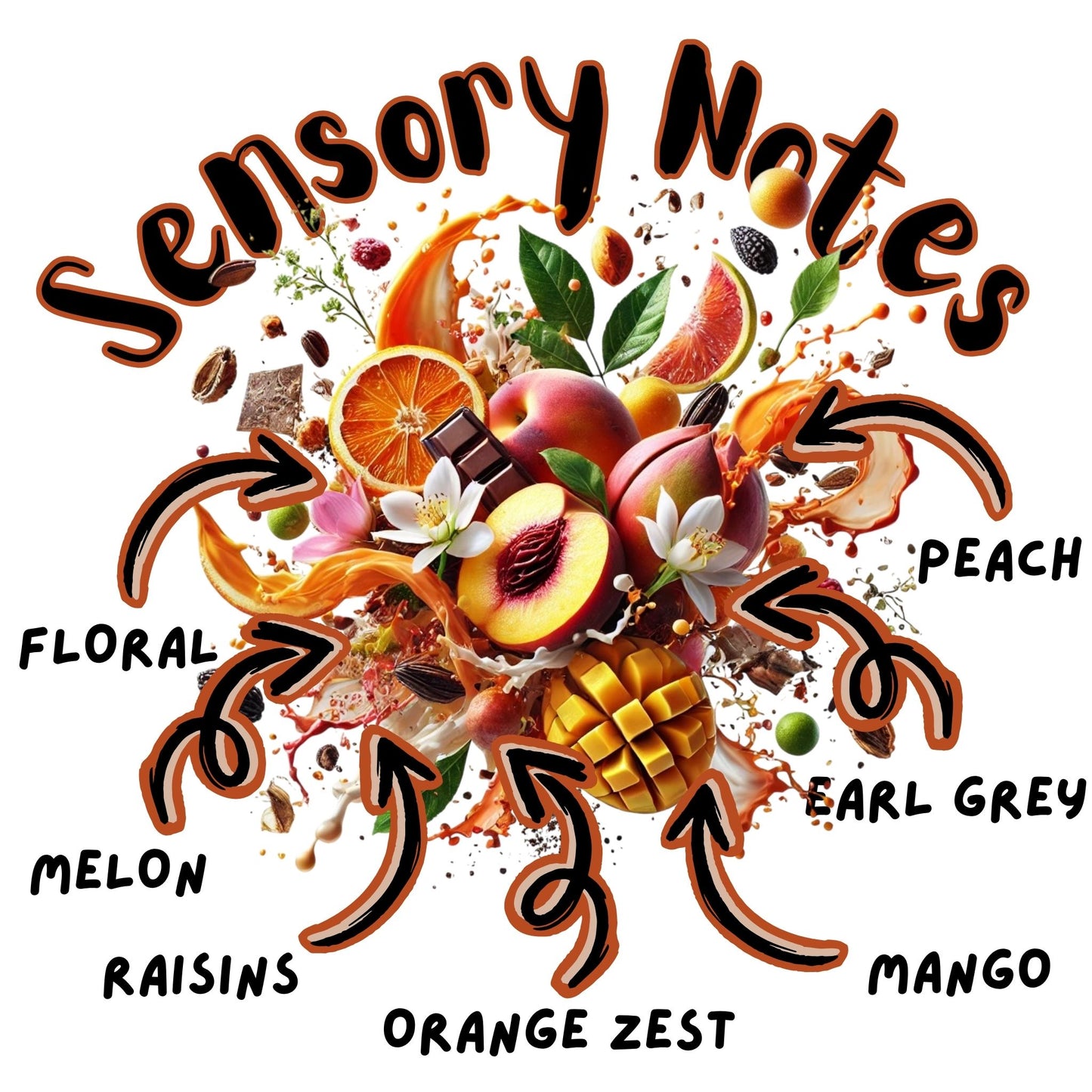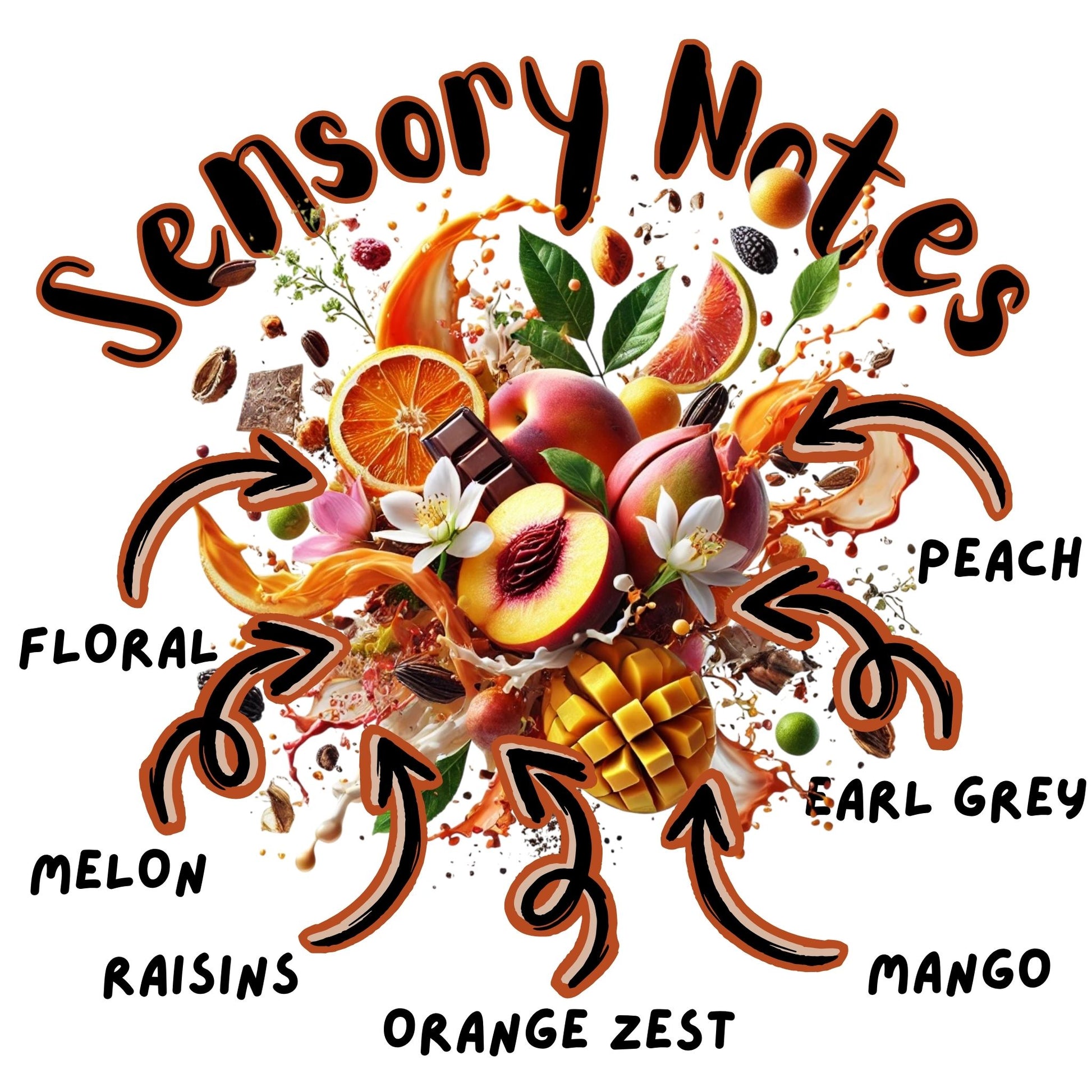Ethiopia Guji Benti Nenka
Ethiopia Guji Benti Nenka





Verfügbarkeit für Abholungen konnte nicht geladen werden
Frisch geröstet für vollen Geschmack
Frisch geröstet für vollen Geschmack
Not sure how much coffee you need?
| Cups a week | 250g bag |
| 1-4 | 1 bag a month |
| 5-8 | 2 bags a month |
| 9-12 | 3 bags a month |
| 13-16 | 4 bags a month |
1 cup of coffee = a 240 ml serving based on a 1:16 brew ratio
For example, if your brew ratio is 1 to 16 (often expressed 1:16, or 1/16), then for every one part coffee, you use 16 parts water. In other words, to prepare 1 cup of brewed coffee you would use 15g of ground coffee and 240 ml of water.
Versand & Lieferung
Versand & Lieferung
Wir versenden täglich von Montag bis Freitag von unseren Standorten in Wien. Der Mindestbestellwert für jede Lieferung beträgt 20 €.
Lieferungen innerhalb Österreichs
4,50 € für Bestellungen bis 35,00 €. Bestellungen über 35,00 € werden kostenlos geliefert.
Lieferzeit: 2 - 4 Werktage
Lieferungen nach Deutschland
9,90 € für Bestellungen bis 70,00 €. Bestellungen über 70,00 € werden kostenlos geliefert.
Lieferzeit: 2 - 7 Werktage
Lieferungen in andere EU-Länder (außer Deutschland)
14,90 € für Bestellungen bis 70,00 €. Bestellungen über 70,00 € werden kostenlos geliefert.
Lieferzeit: 3 - 10 Werktage
Ethisch bezogen, fair bezahlt
Ethisch bezogen, fair bezahlt
Wir arbeiten eng mit Kaffeebauern und zuverlässigen Partnern zusammen, um faire Löhne und transparente Beziehungen zu gewährleisten.
Hinter dem Kaffee
Hinter dem Kaffee
We source this coffee through Nordic Approach. It is an Ethiopian natural lot produced by smallholder farmers located. It originates from Hambela, Benti Nenka village in the Guji Zone of the Oromia region. It grows at elevations ranging from 2000 to 2300 metres above sea level.
In this area, coffee farming is deeply rooted in the community's culture and sustains their livelihoods. Most farms are small-scale, typically 1-2 hectares in size.
The coffee cherries are meticulously handpicked by landowners and their families. They practise intercropping, combining coffee with other food crops, which optimises land use and provides sustenance for the community. The residents hold great pride in their coffee cultivation.
The harvest takes place from around October until December. Farmers carefully handpick only the ripe coffee cherries, ensuring that only the highest quality beans are selected. Following selection, the cherries undergo a natural process where they are dried in the sun. This drying process typically lasts between 2 to 4 weeks, with regular turning of the cherries to ensure even drying.
Once the cherries have reached the desired moisture level, they are stored in a cool place for a few weeks. This resting period is crucial for developing the flavours within the beans.
After the resting period, the dried cherries undergo hulling to remove the dried outer skin and pulp. Subsequently, the beans are milled to remove the parchment layer, revealing the green coffee beans.







